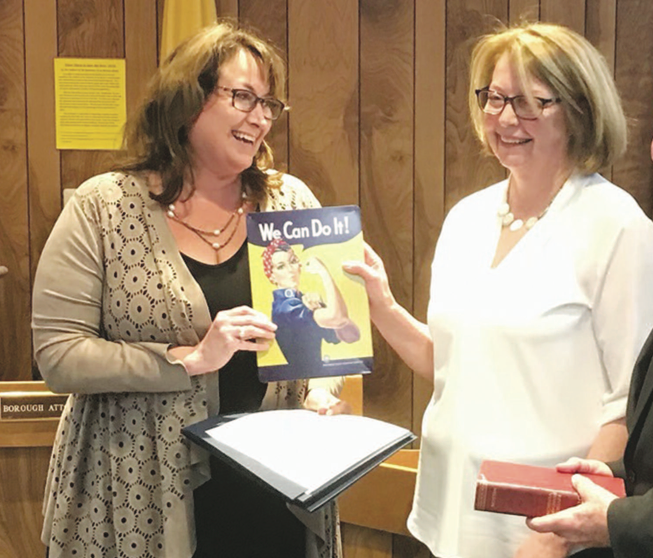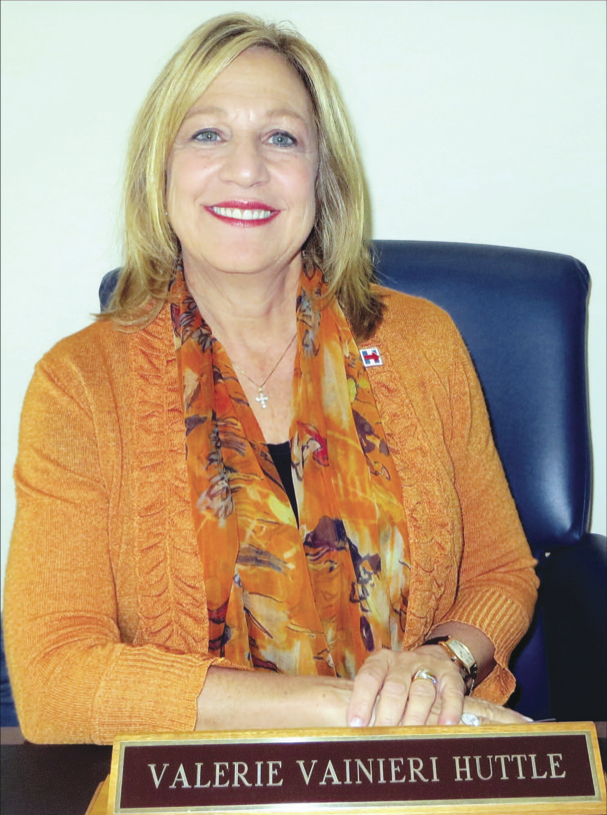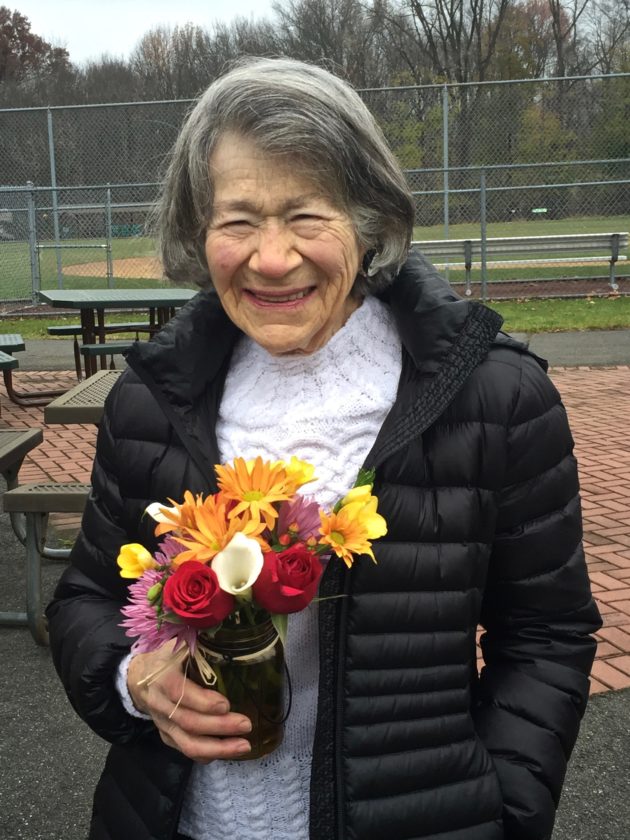
BY HILLARY VIDERS
SPECIAL TO NORTHERN VALLEY PRESS
NORTHERN VALLEY AREA, N.J.—In 2019, women in the political arena are making headway but many feel that there is much more ground to cover. The 116th Congress includes a record 127 women—25 senators and 102 representatives, including two Native American women and two Muslim women, a historic first. This number represents 23.7 percent of all seats. The percentage of women in state legislatures (28.6 percent) and holding statewide elective office (27.6 percent) also reflects new records, but they still remain behind their male counterparts.
In Bergen County, too, we have more women elected officials than ever before. To gain insight into this progress in the light of traditional disparity and a view to the future, I asked several powerful women in politics to comment on a series of questions. The group includes New Jersey 37th District Assemblywoman Valerie Vainieri Huttle, newly elected Demarest Mayor Melinda Iannuzzi and former longtime-former Closter Mayor Sophie Heymann.
This edition of Northern Valley Press also coincides with Women’s History Month, held annually in March for more than 30 years.
What specific assets do women bring to the political arena?
Iannuzzi: Now that we have a bigger number of women in politics, we will have an opportunity to see what assets we do bring to the political arena. When my grandmothers were born in the first decade of the 20th century, women could not vote. It has now been almost 100 years since we got the right to vote, so I do think we have shown great patience waiting to see our participation in politics rise to today’s levels.
Huttle: Research has shown that female leaders typically show more compassion and insight; they are also statistically more likely to welcome negotiation and compromise. Of course, women are just as unique in their leadership style as men and these classifications are not one-size-fits-all. However, case study after case study has shown that with women in power we see qualities of inclusiveness, empathy and open negotiation. In politics, this is critical. The ability to reach across the aisle and find common ground is the difference between advancing legislation or watching it stall.

I also think that the human approach is one of the most important things we bring to government. As women, many of us come into these roles as caregivers, directors of household budgets and the roots of our families. These are key aspects of our resumes, and they give us a unique perspective.
Heymann: Women bring balance, patience, courtesy, attention to detail. Women tend to be less impulsive, more thorough in considering issues, more fair minded, and less politically motivated and more concerned about serving their electorate. Of course, there are exceptions to these characteristics, but they pertain to most of the women I have had the honor to work with.
What are the key issues for which women in government (both local and national) advocate strongly?
Innauzzi: One issue all women in politics can and should advocate for is the increased participation of women in politics at all levels of government.
Huttle: Shirley Chisholm [the first black woman elected to the United States Congress] once so poignantly said, “If they don’t give you a seat at the table, bring a folding chair.” When we elevate women to positions in government and allow them into the decision making process, we ensure that the perspectives and needs of 50 percent of our population are being addressed and represented. I think for many women in government, myself included, we are strong advocates for ensuring that the rights of women are advanced and protected.
There are obvious policy issues where female leaders strive to create change: parental leave, women’s health and reproductive rights, and equal pay. However, studies have shown that female leadership has had clear impacts in varying fields, such as national security, education, the economy and the environment. These are not quintessential “women’s issues” but female leaders shouldn’t be placed in a box, they can impact change in a variety of sectors.

Heymann: Key issues for women in office are gun control, general safety for abortion on both sides of the fence (I am strongly pro-choice) and balanced budgets.
What are the biggest Challenges regarding gender equality that you have had in your political career?
Innauzzi: Fortunately, I have been free of challenges regarding gender equality since I have been running for office. Some of my biggest advocates, advisers and cheerleaders have been men.
Huttle: The problem for women is not winning elections; it’s making the decision to run. However, there is a perceived “qualification gap” amongst women. Fifty-seven percent of women think they’d be qualified to run for office, compared to 73 percent of men. This coupled with the fact that women are less likely than men to be encouraged to pursue political office, either by party officials or other people in their lives, helps to exacerbate the lack of female representation in elected offices.
I first ran for elected office in 1997. During the campaign I was often told that I was abandoning my household duties and my place was in the kitchen. Other common “concerns” were that I wasn’t tough or strong enough for politics. I lost the election that year and between the derogatory comments and the difficulty to run and juggle home life, I almost decided to give up. Thankfully, I had a community of family and friends who encouraged me to run again.
While we have made great strides, we as women still have to work twice as hard to prove ourselves. Although we recently saw an unprecedented number of women win elections for Congress, many still face misogynistic scorn and doubt. Despite such victories, the same challenges remain.
For so long, politics was an old boys club. This leaves women with a disadvantage as they look to form the same networks and business connections that powerful men have been privy to for generations. For me, the greatest difficulty with holding elected office has been its impact on my family. As women, we are told that we can and should “have it all”—a thriving career and family co-existing in harmony. It is my hope that my commitment to public service has served as a positive example for my daughters.
Heymann: My biggest challenges were being taken seriously, although this may no longer be true. But, when I first ran for mayor in 2007, a neighboring mayor who knew me well as a councilwoman called me to give me his best advice, and virtually told me to go back to my knitting—I was wasting my time, and didn’t have a ghost of a chance. That challenge continued with all those who didn’t know me (as I’m sure was true of other women), until they saw me as a leader. ‘
Another challenge for many women is to incorporate public service into an already busy schedule. Although I volunteered and served in leadership positions in many organizations while working and bringing up four children, I did not seek elective office until my children were grown.
What advice would you give young women who want to pursue a career in politics?
Iannuzzi: My advice for young women who want to pursue a career in politics: Jump into the arena, give it a shot. Maybe it is a little scary, but just feel the fear and press on.
Huttle: My advice to young women is simple: take the leap. You are qualified and you are deserving of a seat at the table. If you yourself do not want to run for office, activate your networks and help another woman who should be in office get there.
Advancing women to leadership roles is not only critical because there are proven benefits; women should be in these roles because representation matters. Our decision makers should be as diverse as our population—New Jersey is among the top five most diverse states in the country, and it should show in who has a seat at the table.
Heymann: My advice to women AND MEN is to build up a resume (curriculum vitae), and have leadership skills, confidence, and experience before seeking public office.
